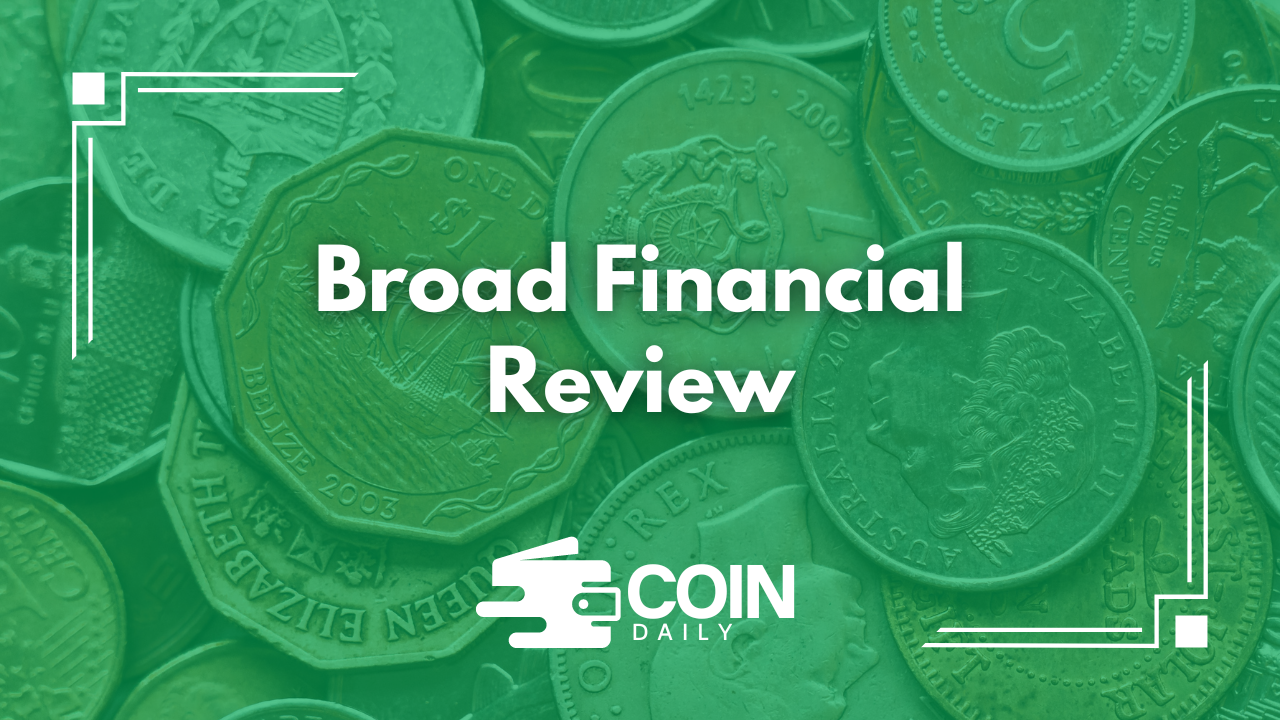A financial review is a critical process that enables individuals and businesses to evaluate their financial health, identify areas for improvement, and establish actionable goals for the future.
Recognizing the significance of this process can facilitate more informed financial decision-making, ultimately contributing to long-term stability and growth.
This guide will outline the fundamental steps involved in conducting a financial review, highlight the key areas of focus, and discuss the benefits of seeking professional assistance.
By the conclusion of this guide, readers will be well-equipped to enhance their financial strategy effectively.
What Is A Financial Review?

A financial review is a thorough assessment of an individual’s or organization’s financial status, concentrating on financial analysis, metrics, and overall fiscal health.
This process usually entails a detailed examination of financial statements, including income statements, balance sheets, and cash flow analyses, to evaluate fiscal policies and ensure regulatory compliance.
By analyzing these components, stakeholders can gain a clearer understanding of their financial position, enabling them to make informed decisions related to budgeting, investment strategies, asset management, and risk assessment.
Why Is A Financial Review Important?
A financial review is essential, as it offers valuable insights into financial planning and aids in the establishment and attainment of financial goals.
By assessing various components such as budgeting, cash flow analysis, and investment strategies, individuals and businesses can formulate risk management strategies that bolster financial stability and navigate economic trends.
Conducting regular financial reviews promotes knowledge-based decision making and strategic planning, ensuring alignment with evolving market conditions and personal or corporate financial objectives.
What Are The Benefits Of A Financial Review?
The advantages of conducting a financial review extend well beyond a basic assessment; they are integral to effective wealth management, performance evaluation, and the promotion of financial literacy. Through a comprehensive financial review, individuals and organizations can gain valuable insights into their financial sustainability, identify opportunities for improvement, and formulate strategies aimed at enhancing stakeholder value.
A thorough understanding of financial metrics, coupled with the implementation of effective budgeting techniques, facilitates knowledge-based decision making and contributes to long-term financial success.
This detailed process enables clients to recognize their financial strengths and weaknesses, thereby allowing for more effective resource allocation. By analyzing past performance, they are positioned to make informed projections for the future, thereby enhancing their capacity to adapt to evolving market conditions.
Additionally, this experience fosters a heightened awareness of spending habits and investment opportunities, ultimately leading to the development of more sustainable financial practices. As financial literacy improves, the likelihood of achieving both personal and organizational goals increases, thereby positioning financial reviews as essential instruments for strategic planning and growth.
What Are The Steps To Conduct A Financial Review?
Conducting a financial review entails a series of organized steps designed to provide a comprehensive understanding of an individual’s financial situation, thereby facilitating effective risk assessment and informed decision-making.
The process generally commences with the collection of all pertinent financial information, including financial statements such as income statements and balance sheets.
Subsequently, an analysis of income and expenses is conducted, along with the formulation of a budget for future expenditures and the evaluation of investment opportunities within capital markets. Each step is essential for achieving financial objectives and ensuring overall financial stability.
1. Gather Financial Information
The initial step in conducting a financial review involves the collection of comprehensive financial information, which includes critical documents such as the income statement, balance sheet, and cash flow analysis. This foundational data serves as the cornerstone for all subsequent evaluations and analyses, facilitating knowledge-based decision making related to investments and expenditures.
Maintaining accurate and up-to-date records is essential for effective financial oversight. This may involve reviewing tax returns, accounts receivable reports, and accounts payable details to obtain a complete understanding of the organization’s financial health.
Each piece of data not only contributes to an understanding of past performance but also aids in forecasting future trends. Regular updates ensure that the analyses remain relevant and assist in identifying any discrepancies in cash flow analysis or other financial statements.
Ultimately, a diligent focus on these documents enables stakeholders to make strategic decisions that can significantly influence the organization’s fiscal direction.
2. Analyze Income and Expenses
Analyzing income and expenses is an essential component of a financial review, as it yields insights into financial metrics that significantly impact budgeting and financial planning. By comparing income sources to expenditures, individuals or organizations can identify spending patterns, uncover potential savings, and refine their financial strategies to improve overall financial health.
Utilizing various methods such as cash flow analysis and variance analysis, one can evaluate how current spending aligns with established financial goals. This systematic examination facilitates the prioritization of essential expenses while eliminating unnecessary costs, ultimately promoting more effective budgeting practices.
A comprehensive understanding of these financial metrics can inform decisions regarding investments or resource allocation, ensuring that financial planning is both proactive and adaptable to future needs. As individuals or organizations enhance their financial approaches based on this thorough evaluation, the pathway to achieving financial stability and growth becomes increasingly evident.
3. Examine Investments and Assets

The examination of investments and assets is essential in a financial review, as it directly influences asset management and the effectiveness of investment strategies. This process entails evaluating existing assets, assessing their performance in relation to market trends, and determining the level of portfolio diversification, all of which can significantly affect long-term financial success and stability.
Investors should employ various methods to assess their assets, including conducting comprehensive financial analyses and utilizing performance metrics to evaluate returns. Portfolio diversification is critical in mitigating risk, allowing individuals to distribute their investments across different asset classes and industries effectively.
Analyzing market trends enables investors to adapt their strategies, ensuring that their portfolio remains aligned with current economic conditions and emerging opportunities. By managing their assets meticulously and employing sound investment strategies, investors can navigate the complexities of the financial landscape while pursuing sustainable growth and achieving their financial objectives.
4. Evaluate Debt and Liabilities
Evaluating debt and liabilities is a critical component of a comprehensive financial review, as it has a direct impact on overall financial stability and credit assessment. A thorough understanding of existing debts is essential for developing effective debt management strategies, ensuring that obligations are fulfilled without jeopardizing future financial objectives.
When individuals or businesses undertake the process of assessing their debts, they acquire valuable insights into their financial health and can identify areas that necessitate immediate attention.
Employing techniques such as creating a detailed inventory of current liabilities, analyzing payment schedules, and calculating debt-to-income ratios is imperative. These practices not only clarify the current financial situation but also assist in prioritizing which debts to address first, facilitating more knowledge-based decision making.
By implementing such measures, one can enhance creditworthiness and establish a robust foundation for the attainment of long-term financial goals.
5. Consider Insurance Coverage
Considering insurance coverage is an essential component of a financial review, as it significantly contributes to maintaining financial health and implementing effective risk management strategies. Adequate insurance not only enhances financial security but also protects valuable assets, ensuring stability in the face of unforeseen events and financial crises.
In today’s unpredictable environment, reviewing insurance policies can reveal potential gaps that may otherwise expose individuals and families to unnecessary risks. A comprehensive assessment not only identifies areas for improvement but also aligns coverage with the evolving needs of life circumstances, such as purchasing a new home or starting a family.
Understanding one’s insurance options give the power tos individuals to make informed decisions, ultimately leading to more effective asset protection. By prioritizing insurance evaluations, individuals can establish a robust safety net that contributes to long-term financial peace of mind, safeguarding against the impact of unexpected situations that could jeopardize overall financial stability.
Check Out the Best Gold IRA Company of 2024
There are over 200+ gold IRA companies in the US and among all of them, I believe Augusta Precious Metals is the best one so far.

Augusta Precious Metals ranks as the #1 gold IRA company in the US. And that’s for good reason.
They have some of the best product catalogs with gold, silver, platinum, and palladium products to offer. But the main highlight is their dedicated web conference and the added focus on client education.
Augusta has an A+ rating on BBB, 1000+ client testimonials, and has been awarded “Most Transparent Company” in 2023 by Investopedia.
No other company puts as much focus on educating their clients about the different aspects of gold IRAs as they do.
My own experience with them was amazing to say the least.
However, their minimum investment requirement is $50,000 which limits the number of people who can open a gold IRA with them. Still, if you have the budget, you shouldn’t look elsewhere.
What Are The Key Areas To Review In A Financial Review?
Identifying the key areas for review in a financial assessment is essential for conducting a comprehensive evaluation. This process should focus on critical aspects such as budgeting, retirement planning, and the investment portfolio.
By assessing these areas, individuals and organizations can align their financial strategies with their objectives, ensure the adequacy of their savings plans, and optimize wealth accumulation over time.
1. Budget and Spending Habits
Evaluating the budget and spending habits constitutes a fundamental component of a financial review, as it directly influences financial planning and the attainment of financial goals. By analyzing cash flow and identifying spending behaviors, individuals can implement informed adjustments to their budgeting strategies, ultimately enhancing their overall financial position.
Understanding the nuances of cash flow analysis is imperative for anyone seeking to gain control over their finances. This analysis provides a clearer understanding of income sources and expenditure patterns, thereby highlighting areas that may necessitate adjustments.
By recognizing expenditure patterns, individuals are better positioned to establish realistic financial goals and eliminate unnecessary spending. Techniques such as tracking expenses, setting limits, and reviewing past purchases are instrumental in developing a personalized budgeting strategy.
Regularly revisiting and adjusting the budget promotes ongoing improvement and give the power toment, contributing to a more stable and secure financial future.
2. Retirement Planning
Retirement planning is a critical component of a comprehensive financial review, ensuring that individuals are adequately prepared for financial independence in their later years. By assessing current savings plans and investment strategies, individuals can align their wealth accumulation efforts with long-term financial objectives, thereby facilitating a secure retirement.
It is essential for individuals to periodically evaluate their financial landscape to identify any gaps that may impede future stability. This evaluation typically involves analyzing various investment vehicles, including stocks, bonds, and retirement accounts, to determine which options best align with their risk tolerance and investment time horizon.
By diversifying their portfolio and adopting a disciplined savings strategy, individuals can enhance their financial resilience. Additionally, considering factors such as inflation and healthcare costs is crucial for making informed decisions that not only safeguard savings but also have the potential to increase wealth over time.
3. Investment Portfolio

Reviewing the investment portfolio is essential during a financial review, as it offers valuable insights into asset allocation and the effectiveness of current investment strategies. By comprehending the impact of market volatility on investments, individuals can make informed decisions aimed at optimizing their portfolios for improved returns.
This process also necessitates a thorough examination of the interaction among various asset classes, allowing for the identification of any imbalances that may expose the portfolio to unnecessary risk. Factors such as changing economic conditions, interest rates, and geopolitical events can significantly influence market sentiment and, consequently, the performance of diverse investments.
By regularly evaluating these elements, investors can refine their approach to investment strategies, ensuring alignment with long-term goals while mitigating potential risks associated with unpredictable market fluctuations.
4. Insurance Coverage
Reviewing insurance coverage constitutes a critical aspect of a comprehensive financial review, as it plays a significant role in risk management and overall financial health. Ensuring adequate asset protection through appropriate insurance policies is essential to safeguard against unforeseen financial challenges and to foster long-term stability.
To effectively evaluate existing policies, individuals should begin by assessing their current coverage in relation to potential risks they may encounter. This process involves not only a detailed review of personal assets but also an understanding of the unique vulnerabilities that may arise, including health-related issues or property damage.
It is imperative to compare various insurers and policy details to guarantee comprehensive protection that aligns with both present requirements and future objectives. Remaining informed about policy changes or enhancements is crucial for maintaining optimal coverage, thereby ensuring that one’s financial strategy remains resilient and prepared to address any uncertainties that may arise.
How Often Should A Financial Review Be Conducted?
Determining the appropriate frequency for conducting financial reviews is crucial for maintaining financial health, particularly in light of evolving economic conditions and regulatory compliance. Regular assessments, ideally on an annual or bi-annual basis, enable individuals and organizations to adjust their financial objectives and strategies based on current financial metrics and market trends.
By engaging in these systematic evaluations, they can identify areas for improvement, capitalize on emerging opportunities, and mitigate potential risks that could threaten their financial stability. Given the rapid pace of economic changes, including fluctuations in interest rates, inflation, and shifts in the job market, periodic reviews not only promote a proactive approach to financial management but also facilitate knowledge-based decision making.
This cadence of reassessment ultimately contributes to a more resilient financial posture, allowing individuals and organizations to navigate the complexities of both personal and business financial landscapes with increased confidence.
What Are The Benefits Of A Professional Financial Review?
Participating in a professional financial review offers a variety of benefits, including access to expert insights and comprehensive analyses tailored to individual circumstances.
Professional financial advisors deliver customized recommendations that take into account unique financial goals, risk assessments, and investment strategies. This approach ultimately fosters peace of mind and contributes to enhanced overall financial health.
1. Objectivity and Expertise
One of the primary benefits of a professional financial review lies in the objectivity and expertise it offers, ensuring an unbiased analysis of financial data. Financial advisors possess extensive knowledge and experience, which enables them to provide informed guidance that may uncover insights that could otherwise be overlooked.
This level of professionalism not only aids in assessing the current financial landscape but also enhances the ability to forecast potential future scenarios, thereby making strategic planning more effective. By leveraging their analytical skills, these experts can identify trends and discrepancies that may elude the average observer.
Their holistic approach often results in tailored recommendations that align with unique financial situations, thereby facilitating rational decision-making.
In navigating complex investment options or intricate market conditions, such impartial analysis instills confidence in clients regarding their financial choices, ultimately fostering sustainable growth and stability.
2. Comprehensive Analysis
A professional financial review provides a comprehensive analysis that offers a holistic perspective on an individual’s or organization’s financial landscape. Through detailed evaluations, including risk assessments and financial forecasting, professionals can identify opportunities and challenges that may necessitate strategic adjustments.
This meticulous approach is essential in today’s dynamic economic environment, where overlooked insights can lead to significant financial setbacks. By adopting a holistic view, financial experts are able to integrate various data points, allowing for a more thorough risk assessment that considers not only the current financial standing but also future projections.
Understanding these factors enables stakeholders to make informed decisions, capitalize on growth opportunities, and navigate potential challenges more effectively. Ultimately, the objective of such comprehensive analysis is to give the power to individuals and organizations to align their financial strategies with their long-term goals.
3. Customized Recommendations

Customized recommendations represent a substantial advantage of participating in a professional financial review, as they offer tailored advice that aligns with specific financial goals. Financial professionals evaluate individual circumstances and develop strategies aimed at optimizing asset allocation, investment vehicles, and risk management, thereby enhancing overall financial performance.
By delivering this level of personalized service, these experts assist individuals in navigating complex financial landscapes, ultimately resulting in improved investment returns. Tailored financial strategies, crafted with a client’s unique risk tolerance and future objectives in mind, can significantly enhance confidence in making informed decisions.
Such bespoke guidance often uncovers opportunities that may otherwise be overlooked, ensuring that each financial decision contributes to a more robust and resilient financial future. This nuanced approach promotes sustainable growth and enables clients to align their financial actions with their long-term aspirations.
4. Peace of Mind
Engaging in a professional financial review instills a sense of peace of mind, offering individuals and organizations a heightened sense of financial security. By allowing experts to assess their financial health, clients can alleviate stress and concentrate on their long-term financial objectives, confident that their assets and investments are being managed effectively.
This professional oversight not only facilitates the identification of potential risks but also provides reassurance that financial strategies are aligned with personal values and aspirations. Given the uncertainties present in the financial landscape, having a comprehensive understanding of one’s financial position promotes knowledge-based decision making and fosters confidence for the future.
The emotional relief derived from such reviews contributes to a more balanced lifestyle, enabling individuals to focus their energy on meaningful pursuits rather than financial concerns. As individuals gain greater awareness of their financial trajectories, they can develop healthier money habits, thereby enhancing their overall well-being and securing financial stability.
If you want to learn about identifying gold IRA scams, I recommend getting this free checklist. It will equip you with the knowledge you need to avoid potential gold IRA scams.
Frequently Asked Questions
What is a Broad Financial Review?
A Broad Financial Review is an in-depth analysis of a company’s financial performance and position, typically covering a longer period of time and including a variety of financial metrics.
Why is a Broad Financial Review important?
A Broad Financial Review provides a comprehensive overview of a company’s financial health, which can help identify areas of strength and weakness and inform strategic decision making.
Who typically conducts a Broad Financial Review?
A Broad Financial Review is usually carried out by financial analysts or experts, either internally within a company or by external consultants.
What information is included in a Broad Financial Review?
A Broad Financial Review typically includes an examination of a company’s income statement, balance sheet, and cash flow statement, as well as an analysis of key financial ratios and trends.
How often should a company conduct a Broad Financial Review?
The frequency of a Broad Financial Review may vary depending on the size and complexity of a company, but it is generally recommended to conduct one annually to track progress and identify any potential issues.
Is a Broad Financial Review the same as an audit?
No, a Broad Financial Review is different from an audit, which is a formal examination of a company’s financial statements by an independent auditor. A Broad Financial Review is usually less formal and can be conducted by internal or external parties.



